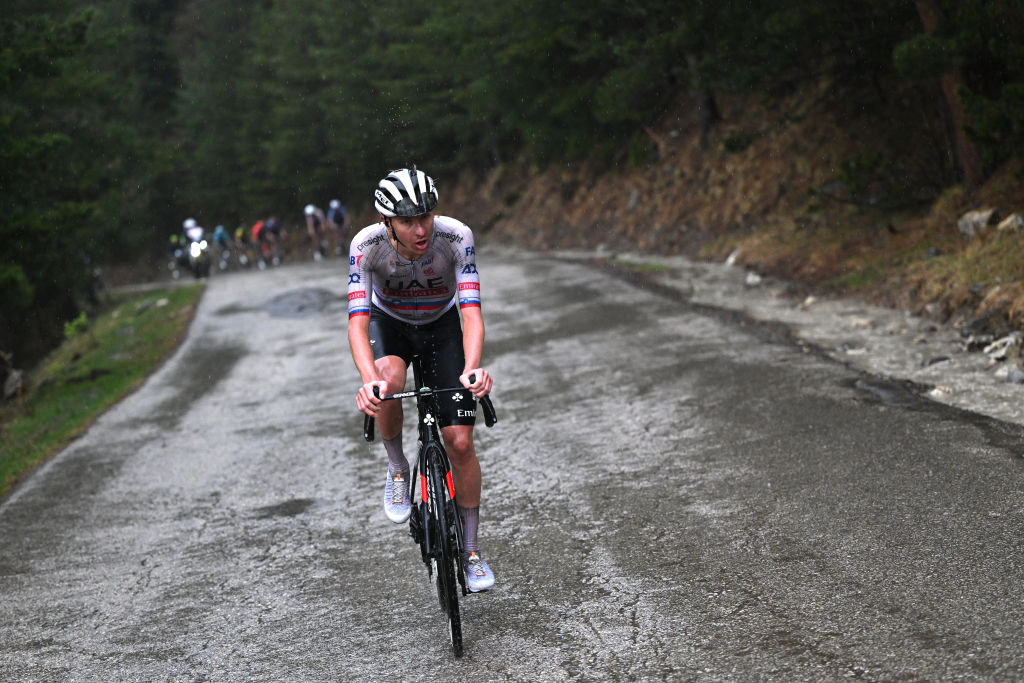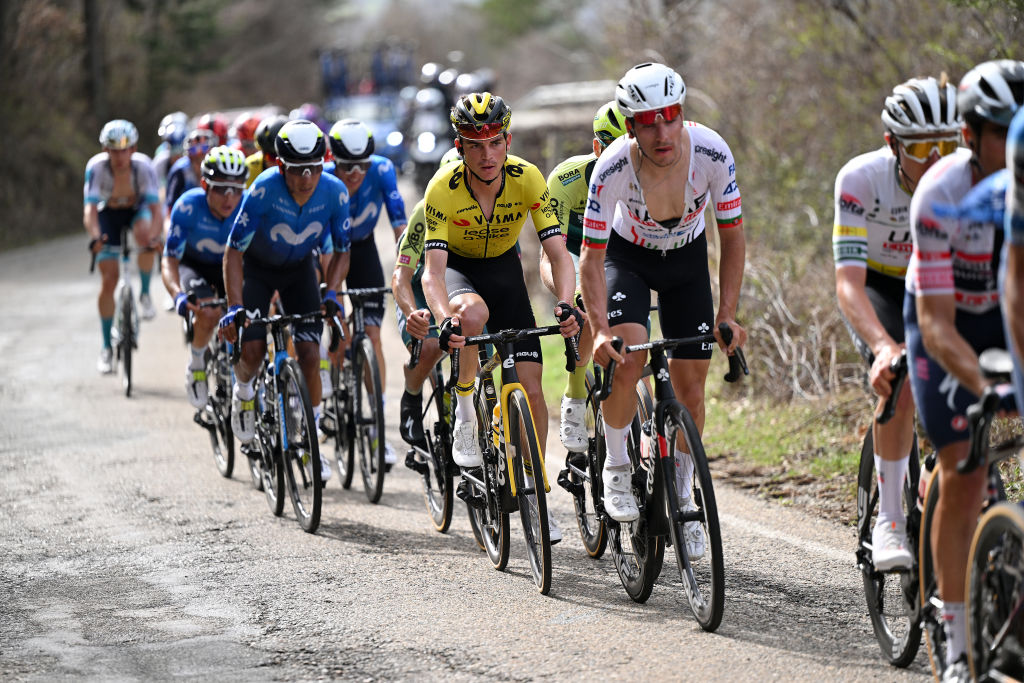
With multiple cycling clubs, an ongoing exhibition for historic Spanish team Kelme and a long overdue start to the Volta a Catalunya on Saturday's ultra-tough mountain stage, to describe the Pyrenean town of Berga as cycling-mad would be no exaggeration.
But it's not just local riders who matter here. In Berga, they've even got a Sepp Kuss fan club. And a metre-high chocolate Sepp Kuss as part of a cake, too.
The chocolate Sepp, proudly on display in one local baker's store, is actually a traditional Easter cake, made for the upcoming religious festival.
Why this year? Simply because with the Volta a Catalunya returning to Berga for a start this Saturday for the first time since triple Vuelta a España King of the Mountains Anthony Karpany won in 1959, a finish at the first-category Alto de Queralt summit finish just outside the city, and Kuss racing in the Volta a Catalunya, too, the opportunity to make a 'Sepp cake' was too good to miss.
"Yeah I saw a picture of it in the local paper and they made a nice mona de Pascua [Easter Cake] of me, so that's really beautiful – they did a great job," Kuss told Cyclingnews on Friday.
"And it's a beautiful stage, too, through a great area to ride and race. It's really nice that the Volta can take advantage of such an amazing area."
As for his local fan club, who are expected to gather in their yellow Visma jerseys on the Queralt climb, Kuss said, "There's a Youtube channel who made a peña ciclista [fanclub] here. I was surprised at the number of people that registered and now they'll have a nice day watching the race."
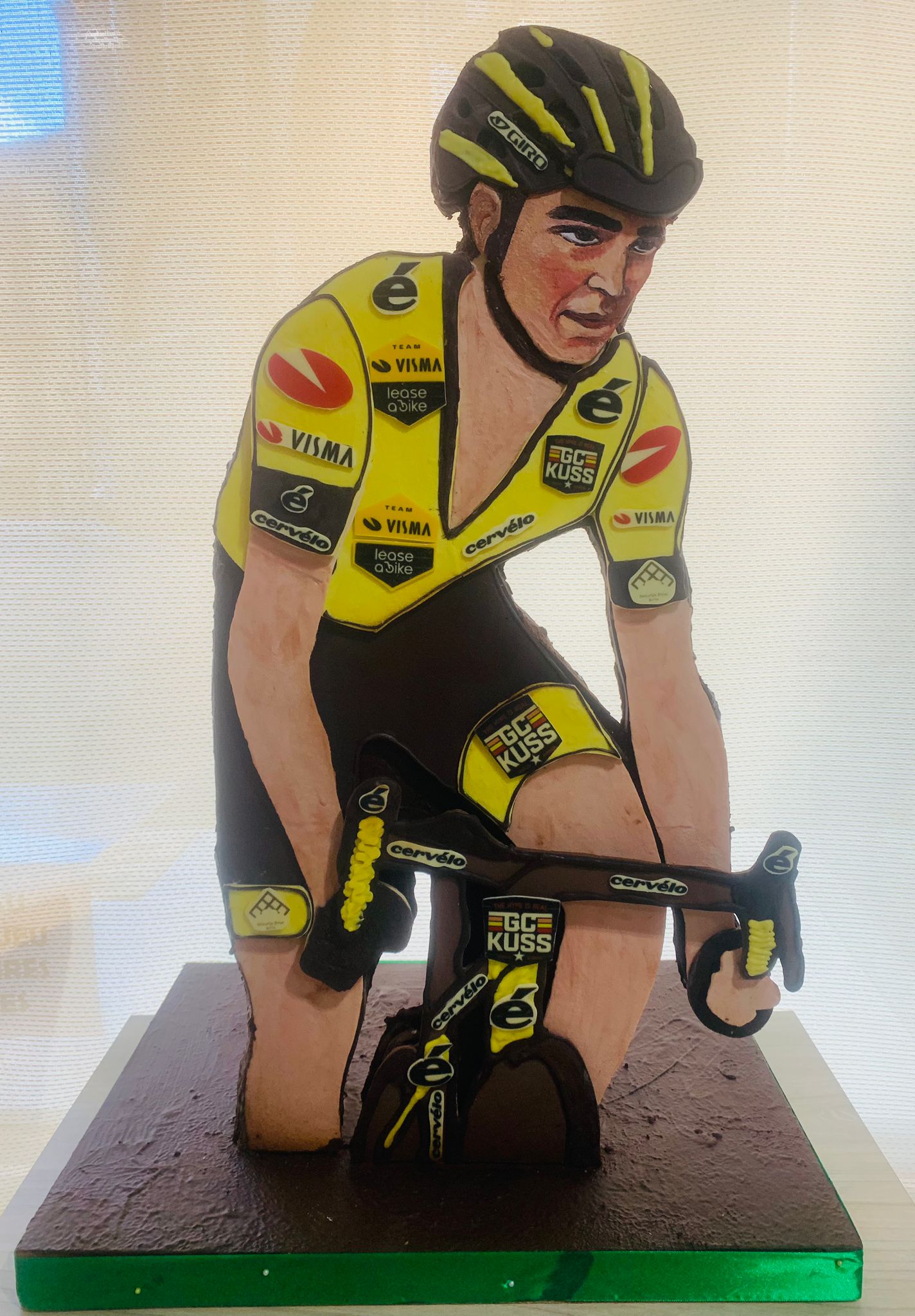
Kuss fans may be numerous in Berga, but they reflect a widespread interest in cycling across the region, explains one sports journalist based in the town, Isaac Vilalta of Catalunya Radio and Volata magazine.
"There are cycling clubs in almost every village and town in the surrounding area and some in Berga as well, of course. And a lot of young people are getting interested in cycling and cyclo tourists come here because there's not much traffic around and loads of climbs," Vilalta told Cyclingnews.
"Plus, we've got a lot of cycling history, amateur races use this area, and there have been stages of the Setmana Catalana race here" – for many years Catalunya's second biggest bike race until it folded in 2005 – "And the Vuelta a España too."
But not, he explains, the Volta a Catalunya, or not since 1959 – something hard to explain in a Catalan cycling 'heartland'.
"So for years, as the Setmana would come to the Bergà region a lot, the Volta would deliberately avoid it as a kind of unwritten pact not to tread on each other's toes, geographically speaking," said Vilalta.
"But even when the Setmana stopped happening back in 2005, the Volta still didn't come here. So it's great that it's finally happening. It's like we're rebuilding some of our cycling history."
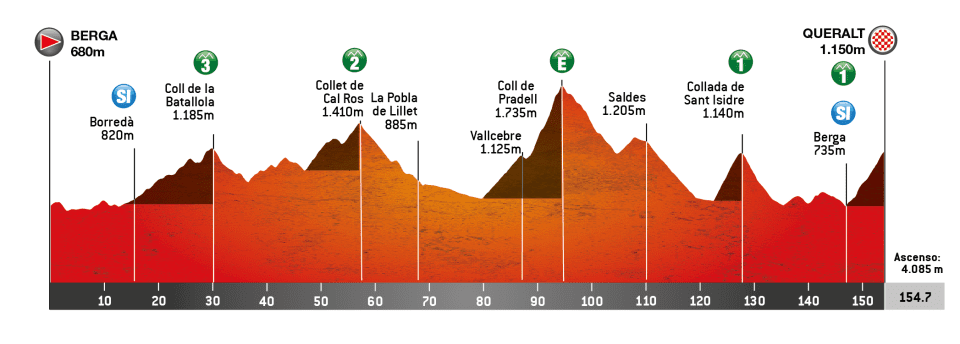
What the Volta has discovered is an area with no less than four Hors Categorie climbs, with the one tackled on Saturday, the Col de Pradell, widely rated by riders like Michael Woods (Israel-Premier Tech) as being one of the hardest, if not the hardest, single ascents in Catalonia.
The climb is 14.5km long with an average gradient of 7%, though the final 5.5km measure in at a leg-breaking 11% average. Coming some 60km from the finish, as Kuss sees it, and with two first-category climbs immediately afterwards, is the ideal combination.
"For sure it's going to be a hard stage, and where Pradell is located is far from the finish, but just far enough," Kuss told Cyclingnews. "It's sometimes better to have the toughest climb there so it creates some action that way."
Berga is not just celebrating cycling's present and the return of the Volta, either. The Catalan town acted as a logistical base for one of Spain's most longstanding teams of the 1980s and 1990s, Kelme – famous for its 'green paw' symbol and green-and-white team kit – and Kelme's manager, Joan Mas, was from Berga, too.
To honour that link with cycling history, there's an ongoing exhibition about the team in one of the town's museums.
The Sanctuary of Queralt, the first-category climb where the summit finish takes place, has been tackled in the past in the sport – but as part of the Setmana Catalana. In 1991, Stephen Roche all-but conquered the stage race with a victory there.
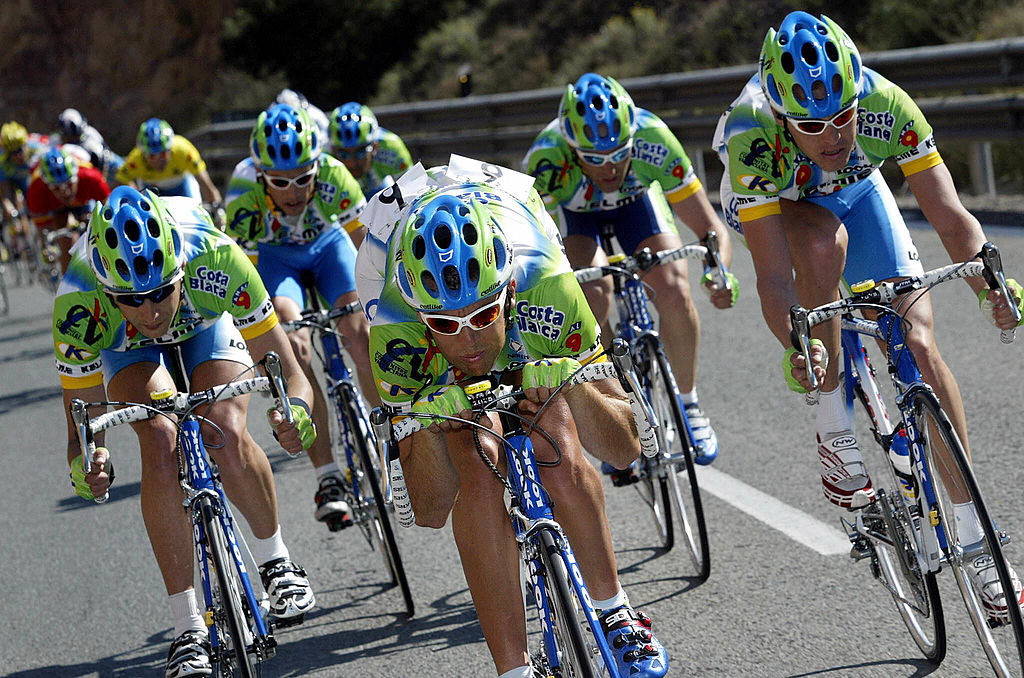
But it's the Pradell, never tackled before in a bike race and only relatively recently surfaced, which draws the attention the most – and live TV coverage has been extended by half an hour to ensure fans can watch its debut in the Volta.
"It's really hard," local pro Marc Brustenga of Kern Pharma, who moved to the Berga area a few years back, told Cyclingnews. "It's so tough that the times I've gone up it, I've thought of stopping and putting my foot on the ground. Why? Because the last part, in particular, the slopes are really steep and go on for a really long time.
"There's one point where you're going through a town with about five kilometres to go, Vallcebre, where it doesn't seem so steep because you're in a street and going past houses, but in fact the gradient is oscillating between 15 and 20%.
"And that last part, I don't know if it's 2km or more, but it just goes on being equally hard and it just finishes you off. The tarmac isn't great, and there are parts with no corners at all – just one long straightaway of ultra-steep climbing, that really does your head in. It feels like your bike isn't moving on the surface either, with the cement that's just underneath the tarmac.
"I don't know if it's so hard, in fact, that it'll be a climb where there's no strategy, just survival. Just get up it as best as you possibly can."
The descent is not too tricky, he says, and there's a big chunk of two-lane highway to recover.
"But I can see people struggling a lot on the second last climb" – the Collada san Isidre, peaking with 24km to go – "particularly after what they've had to tackle already. If the race hasn't blown apart on the previous one, it will on this one.
"I rode up it today [Friday] and it's only four kilometres long. But it's a constant 10%, 11%, 8%, 9%...and it never goes down from that. And the drop down is much tougher too.
"Then it's a constant up and down all the way back to Bergà and the final climb."
The last ascent to the Sanctuary is narrow, but not particularly hard, but according to Brustenga, the organisation have deliberately toughened it up by adding an extra segment of climbing through the town.
"If you're a normal cyclo-tourist, you just swing off the main road and up to the climb," Brustenga said. "But, the organisers have designed the race route so they've got to go through some of the hardest ascents in the town as well.
"And that combination of going through the town's climbs and the normal ascent makes it all much more difficult. Coming with all of what's already happened on the stage, it's going to be very hard."
Asked about how he sees a rider like Tadej Pogačar tackling such a difficult stage, Brustenga points out that "at the moment he's very much on top of his game and ahead of the field. But this is a day where if you have a bad moment and crack, then you pay for it heavily.
"The climbs are so hard that not even getting on a teammate's wheel would work as a defence and if it's as warm as it was on Saturday, it could make this the first day of high mountain racing in hot weather in 2024, and that always throws up a few surprises.
"It doesn't seem like that's going to affect Pogačar, but you never know."
